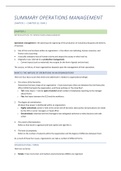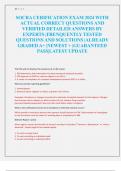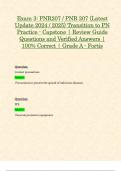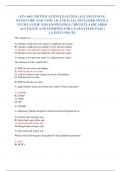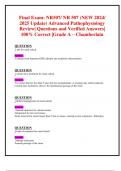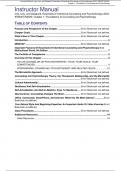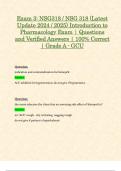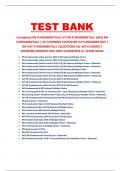Tentamen (uitwerkingen)
Midterm Exam: NR606/ NR 606 (Latest Update 2024/ 2025) Diagnosis & Management in Psychiatric Mental Health II Practicum Review |Weeks 1-4 Covered| Questions and Verified Answers| 100% Correct- Chamberlain
- Vak
- Instelling
Midterm Exam: NR606/ NR 606 (Latest Update 2024/ 2025) Diagnosis & Management in Psychiatric Mental Health II Practicum Review |Weeks 1-4 Covered| Questions and Verified Answers| 100% Correct- Chamberlain Q: Piaget's Stages of Cognitive Development Answer: -Sensorimotor stage: Birth-2 yrs ...
[Meer zien]





